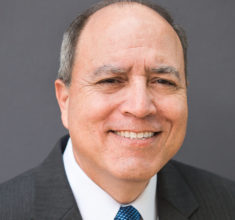By Current Consulting Group (CCG) Compliance Team
This information is provided for educational purposes only. Reader retains full responsibility for the use of the information contained herein.
As the fifth most populous state, Pennsylvania is generally a very “drug testing friendly” state, though the city of Philadelphia has its own rules and regulations separate from the rest of the state. Actually, Philadelphia is a prime example of the influence a municipality can have on workplace drug testing in general and certainly within the city confines.
Following are five key things you need to know about drug testing in Pennsylvania with a bonus section on Philadelphia.
- Drug Testing Law Type: Pennsylvania is a drug testing-friendly state with no restrictive statute in place. However, PA law does have specifications on drug test cheating, workers’ compensation, and unemployment denial.
- Random Testing: No regulations on testing methods is mentioned in the law, including random testing.
- Workers’/Unemployment Compensation Denial: In general cases of workers’ compensation, no compensation shall be paid when injury or death is caused by an employee’s violation of law,
including, but not limited to the illegal use of drugs. But the burden of proof is upon the employer. No compensation will be paid if the injury or death would not have occurred if the employee had not been intoxicated[i]. An employee will be ineligible for compensation when his/her discharge was due to failure to submit and/or pass a drug test conducted pursuant to an employer’s established substance abuse policy, provided that the drug test is not requested or implemented in violation of the law or as the result of a collective bargaining agreement. [ii] - Marijuana Laws: The use of medical marijuana in the state of Pennsylvania is permitted. An employer is not permitted to discriminate against an employee in compensation, terms, conditions, location, or privileges solely on the basis of the employee’s status as a certified medical marijuana patient. An employer may discipline an employee for working while under the influence of medical marijuana when the employee’s conduct falls below the standard of care normally accepted for that position. Recreational marijuana is not currently legalin Pennsylvania and recreational marijuana use can be prohibited by employers.[iii]
- How to Test: Drug testing procedures are not mentioned in any Pennsylvania statute.
- Philadelphia: The city has a mandatory drug testing law that applies to private-sector employers. Pre-employment drug testing for the presence of marijuana is restricted. This ordinance does not apply to drug testing required pursuant to federal/state statute, regulation, or order that requires drug testing of applicants for the purpose of safety or security. [iv] There are exceptions to this restriction for positions such as those requiring a commercial driver’s license, positions requiring the supervision of children, medical patients, or vulnerable individuals, or positions which impact the health and safety of the public or other employees.
ClearStar has partnered with Current Consulting Group who provide extensive information about laws in each state that affect workplace drug and alcohol testing at Current Compliance, an annual subscription service. Learn how to subscribe here.
End Notes
[i] 77 Penn. Cons. Stat. Ann. 431
[ii] 43 Penn. Cons. Stat. Ann. 802 (e.1)
[iii] Penn. M.M. Act Sec. 2103
[iv] Philadelphia Code Chapter 9-4700
© 2010-2023 The Current Consulting Group, LLC – No portion of this article may be reproduced, retransmitted, posted on a website, or used in any manner without the written consent of the Current Consulting Group, LLC. When permission is granted to reproduce this article in any way, full attribution to the author and copyright holder is required.













